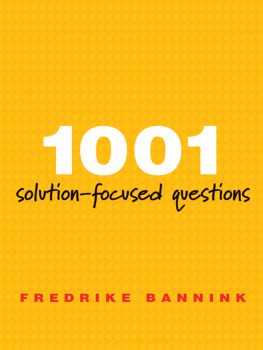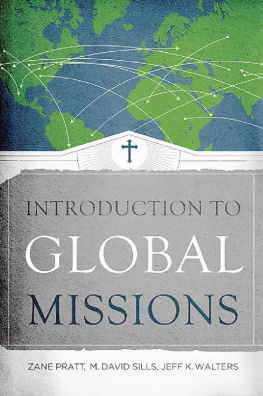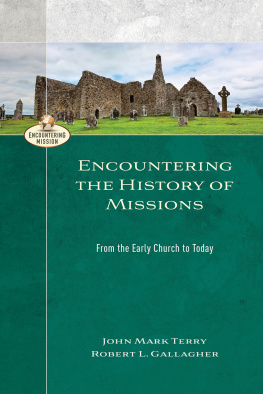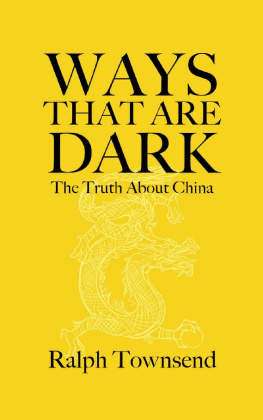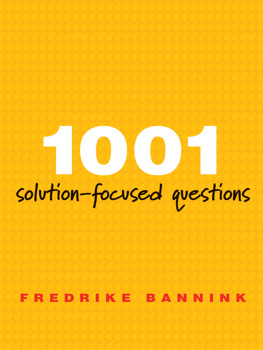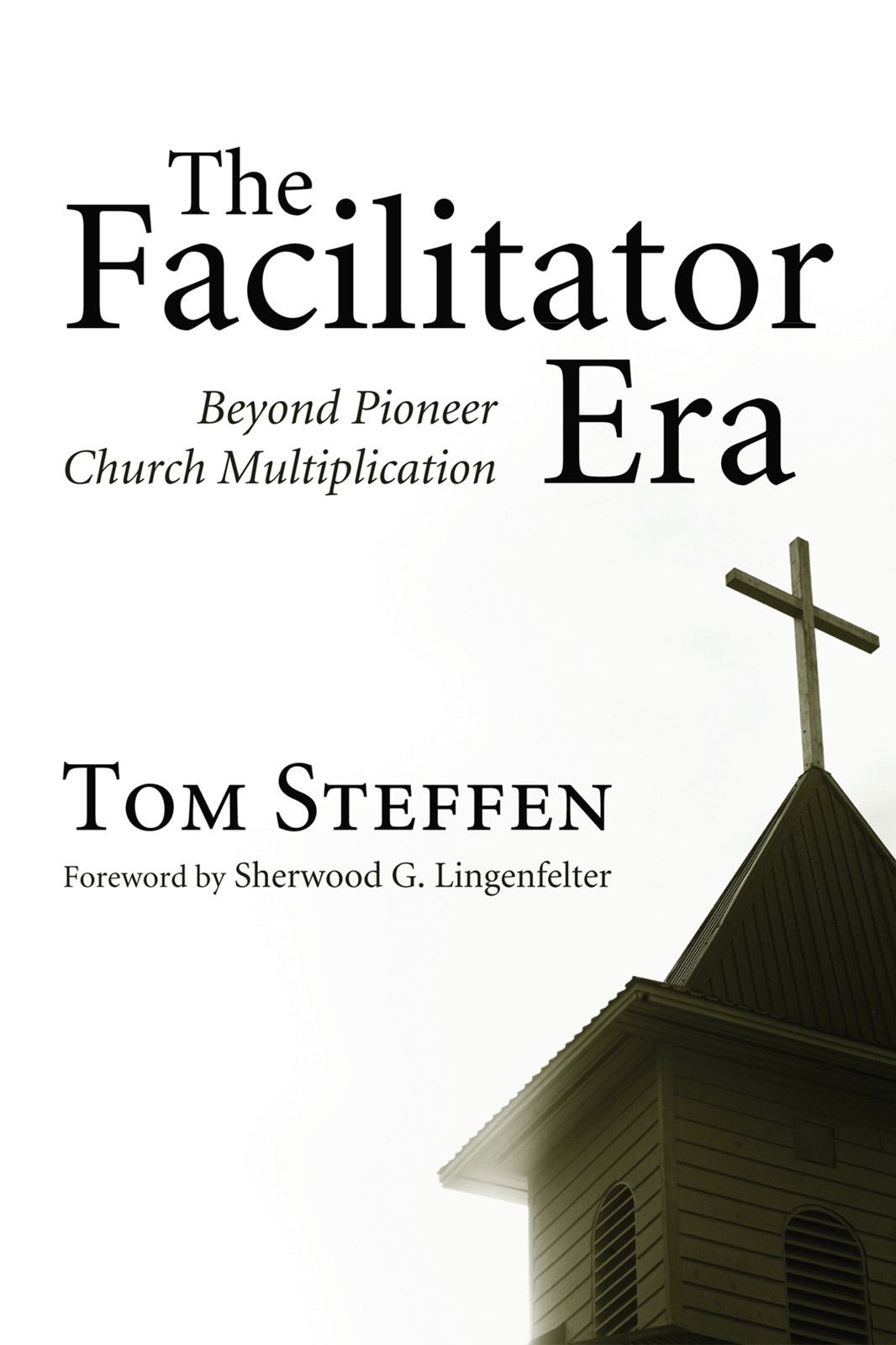Acknowledgments
W here do I begin in trying to give tribute to all who have helped make this book become a reality? Ill start closest to home and work outwards. Special thanks go to my loving wife and partner, Darla, for allowing me to be married to a another for the past few yearsmy laptop computerso that this project could be completed. Please take heart. The long honey-do list is next on the agenda.
Thanks also go to Dr. Douglas Pennoyer, Dean of the Cook School of Intercultural Studies at Biola University. I have deeply appreciated your encouragement over the yearsand being kept off those many committees. Maraming salamat po .
Without the insightful help of my editor, Elizabeth Childs Drury, this book would not read as well or contain some of the insights that pepper its pages. Thanks, Liz, for your perceptiveness and hours of dedication. I also thank Elizabeth McCall for her hard work in providing a PowerPoint presentation for each of the main chapters of the book. I encourage the reader to take advantage of her stellar work available at https://sites.google.com/a/biola.edu/the-facilitator-era/.
I would also like to express my deep appreciation for all the Western missionaries who served and sacrificed around the globe through the first three eras of missions. They learned cultures and languages, contextualized the gospel, planted churches, and made mistakes, yet they improved the lives of many people in multiple ways, often under harsh conditions.
Last but certainly not least, I would like to extend a special thanks to those who contributed case studies for this book. Your ministries speak for themselves as to service, dedication, failures, lessons learned, and the role changes presently taking place for many westerners participating in global missions. You have been my teachers, and you will help instruct the next generation of pioneer and facilitative Christian workers serving in this fast-changing world.
The Backstory
Meet the Beavers
B ill and Bev Beaver have recently returned home to the United States after two intense but rewarding years of ministry in the Philippines. After graduating three years ago from a secular university with business degrees, they felt God leading them to the Philippines to become involved in a church-planting effort south of Manila on the main island of Luzon. Following a battery of tests and numerous interviews, Reach the Philippines through Church Planting (RPCP), an international, non-denominational agency, accepted them for service. With the blessing and financial support of their home church, the young couple headed to the Philippines.
The two-year term of service flew by. The Beavers believed before they left the field that they were prepared to make an intelligent decision about whether they should return long-term. But before making that decision, Bill and Bev need to complete a six-month home assignment.
* * *
Its so good to be home again, sighed Bev, but I do miss all the friends we made. Adita, Jun, Sunny, Felix
And the great food! interrupted Bill, Lumpia, adobo, halo halo
Stop! laughed Bev. Youre making me hungry.
Bill and Bev smiled at each other from across the bistro table in the coffee shop. Silently, they drifted into dreamy reflection, peacefully resting their chins in their hands, warmed by the afternoon sunshine streaming through the window, oblivious to the bustle and chatter around them.
Ive been thinking, said Bill.
Uh, oh, chided Bev. Ive heard those words before.
No, dont worry. This isnt a new idea, Bill reassured her. We discussed it in the Philippines many times. Remember when we were learning Philippine culture and studying Tagalog? It seemed like such a difficult language to learn. Remember when I ordered ice cream at a restaurant and we were served spaghetti?
Yes, answered Bev, smiling. And I remember how surprised we were that even though the Filipinos dress a lot like Americans and enjoy the same types of music, theyre still very different culturally from Americans. At the movies they always laughed when we didnt, and we laughed when they didnt.
And they dont drive like Americans, at least most of them, reminisced Bill. Its the biggest vehicle that dominates; its the one who hesitates who gets stuck waiting; and its the one who stops at a stop sign who gets rear-ended. Remember our first taxi ride? I thought we would literally be short-termers!
Anyway, continued Bill, getting back to my idea, I think we should try to further our understanding of cross-cultural church planting while were at home. We learned a lot in the Philippines, but I think there is much that we have not been exposed to. What do you think?
We certainly had some great mentors, especially Dave and Donna, replied Bev. Even though they had no formal studies in church planting, they learned it the hard wayon the job.
Remember when we asked Filipinos to raise their hands if they wanted to accept Christ? asked Bev. And of course they all did. We were so happy with the results and could not wait to tell Dave and Donna of Gods great moving in our Bible study. When we did, they graciously informed us that this response will happen almost every time because of the shame factor. Here we were, thinking Filipinos were coming to Christ, but the Filipinos thought they were just being polite to us Americans. Wow! What a disconnect.
Dave and Donna taught us to be hungry, lifelong learners, added Bill. Dont just be critics; be contributors, they would often say. What mentors!
Maybe we could attend some seminars or audit some classes while were home. Thats one reason that I think we should study church planting during this six-month period. Another reason has to do with what our teammate Jun told us shortly before we left the Philippines. Remember when I asked him if expatriates should really be involved in pioneer church planting in the Philippines?
Not only do I remember the question, replied Bev, but I will never forget his jaw-dropping answer. I was silencedwhich is really something for this motor-mouth!because what he said was so shocking. After all, he should know! He has pioneered more church plants in the RPCP agency than anyone else, expatriate and Filipino combined.
Thats for sure! said Bill. He demands respect for all that hes done, for his impeccable character, and for his spiritual depth. But why do you suppose he gave the answer he did? He said emphatically that expatriates are no longer needed to go out on their own to pioneer church plants in the Philippineseven among unreached people groups! Why would he say such a thing? Should we really be going back in that role? Im confused.
We both are, continued Bev as she nervously twisted her ponytail, especially after I saw a crazy ad in a Christian journal the other day. It said, Thank you for staying home. Whats up with that?
And dont forget what that so-called missions expert said at the missions society meeting yesterday, added Bill. He claimed that the day of the career missionary is over, since God seems not to be calling North Americans for more than two- to six-week forays. He said that nationals can do it better, face less culture stress, live cheaper, and know how to suffer. Plus, he pointed out that theyre more numerous and that theyre ready to go.
And I just read in Bob Roberts book, Transformation , that basically the day of the white man venturing out and starting churches is forever over. Could that be true? Bill asked in exasperation. The author seems to assume that all Americans are white men, by the way, but thats a topic for another discussion.




